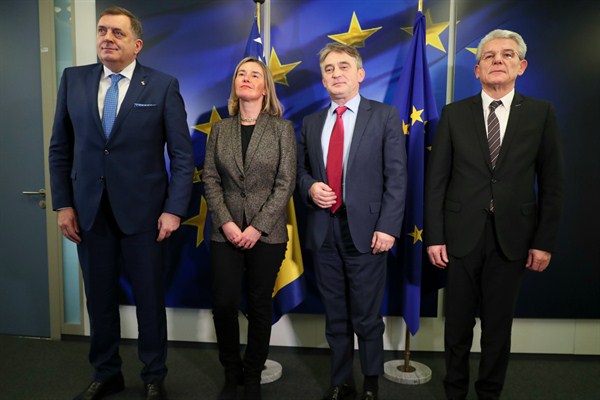Bosnia and Herzegovina’s unique and often unstable tripartite presidency missed its deadline to form part of its national government in early September, almost a year after general elections, amid continued disagreements on whether to proceed with long-in-the-works plans to join NATO. With its leaders deadlocked, the country’s path toward both the Western military alliance and membership in the European Union is as uncertain as ever.
Twenty-five years after the end of the brutal war that killed over 100,000 people and left millions displaced, Bosnia’s dysfunctional political system continues to hamper its long recovery. The country is still reliant on international funding to support development and to maintain peace, while the country’s youth unemployment is one of the highest in the world, at 46.7 percent, according to the World Bank. Its three presidents—each representing one of the three dominant ethnic identities of Serbs, Croats and Muslim Bosniaks—have now brought Bosnia to a standstill over its future relationship with NATO.
Any political turmoil in the country could further threaten its economic stability and the delicate governmental system established in 1995 with the U.S.-brokered Dayton Accords, which ended the Bosnian War but failed to address strained ethnic relations. The peace agreement created two entities, the Republika Srpska and the Federation of Bosnia and Herzegovina, which together form the state of Bosnia and Herzegovina. But it also created a complex system in which three co-presidents take turns as the rotating chairperson of a collective presidency. While it provided a foundation for the country’s constitution, that system has not proven sustainable in actually governing the Balkan state.

